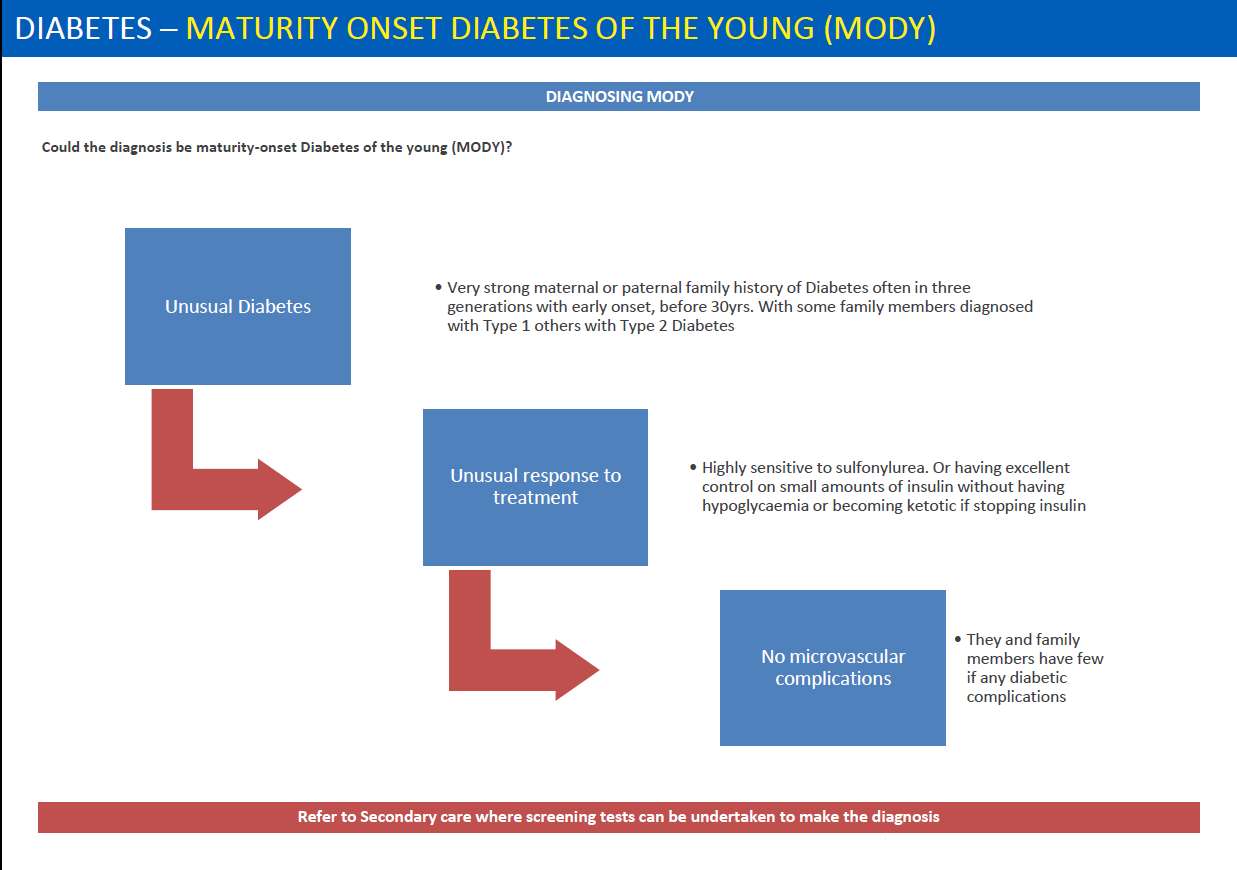Diagnosis of MODY
diagnosis
Differentiating MODY from type 1 or 2 diabetes is often difficult due to an overlap in clinical features.
MODY should be suspected and further assessment should be carried out in the following instances:
- a strong family history of diabetes (of any type) with onset in the second to fifth decade
- when the age of presentation for diabetes is before 25 years old
- features inconsistent with the diagnosis of type 1 diabetes
- insulin independence
- persistently detectable C-peptide
- negative pancreatic autoantibodies status
- features inconsistent with type 2 diabetes
- lack of insulin resistance and its markers e.g. - acanthosis nigricans, central obesity, hypertension, and dyslipidaemia (1)
Other features which may point towards MODY include:
- a low renal threshold (glycosuria at blood glucose levels <10 mmol/L)
- a large increase of >5 mmol/L on OGTT may raise the suspicion of a HNF1A mutation
- marked sensitivity to sulfonylurea e.g. - in subtypes HNF1A and HNF4A (1,2)
A useful schematic suggests (3):

Diagnosis of MODY is by direct sequencing of the genes. It is recommended that patients should receive genetic counseling before predictive genetic testing (when the person does not have diabetes), especially for children. Diagnostic genetic testing could be offered to relatives of patients with MODY who have diabetes (3)
Note:
- high sensitivity C reactive protein is reported to be significantly lower in patients with HNF1A mutations than in those with other types of diabetes which can be used in the diagnostic pathway (4)
Reference:
- (1) Gardner DS, Tai ES. Clinical features and treatment of maturity onset diabetes of the young (MODY). Diabetes Metab Syndr Obes. 2012;5:101-8.
- (2) Nyunt O et al. Investigating maturity onset diabetes of the young. Clin Biochem Rev. 2009;30(2):67-74
- (3) North West London Diabetes Guidelines (Accessed 10th September 2020)
- (4) Thanabalasingham G, Owen KR. Diagnosis and management of maturity onset diabetes of the young (MODY). BMJ. 2011;343:d6044
Create an account to add page annotations
Add information to this page that would be handy to have on hand during a consultation, such as a web address or phone number. This information will always be displayed when you visit this page